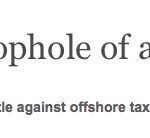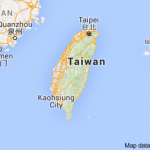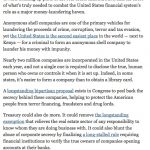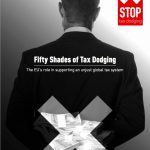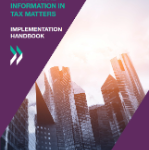We get a nice name check in an article in this week's Economist, which goes after a subject we've been particularly exercised about for some time: Tax Haven USA. It cites one player in the spreading game: “It’s going nuts. Everyone is doing it or looking into it,” says a tax … [Read more...]
Information Exchange
 If a person or entity resident in one jurisdiction owns income-generating assets in another jurisdiction, the resident’s tax authorities generally need to know about that asset or income, to assess their tax liabities. So jurisdictions exchange information with each other for tax (and other) purposes under a range of international schemes, agreements and protocols. Many, of course, don’t exchange or even collect that information locally – or they put up obstacles in the way of information exchange.
If a person or entity resident in one jurisdiction owns income-generating assets in another jurisdiction, the resident’s tax authorities generally need to know about that asset or income, to assess their tax liabities. So jurisdictions exchange information with each other for tax (and other) purposes under a range of international schemes, agreements and protocols. Many, of course, don’t exchange or even collect that information locally – or they put up obstacles in the way of information exchange.
Historically, the OECD, a club of rich countries that has been mandated by G20 leaders to promote the agenda, has claimed that its very weak “on request” standards for information exchange constitute the “internationally agreed standard” for information exchange. “On request” means that information is only passed over after a clear request is made, specifying the taxpayer concerned and various other bits of information about him or her. In essence, you have to already know what you are looking for before you ask for it.
However, from around 2012 a new consensus started to emerge, strongly supported by the Tax Justice Network and its allies, that the world needs far stronger standards, notably “automatic” information exchange between jurisdiction, on a multilateral basis. Various working examples of automatic information exchange are already up and running: perhaps most notably the EU’s Savings Tax Directive and the U.S. Foreign Account Tax Compliance Act (FATCA.)
This page provides links and news about information exchange. See also our information exchange archive for older stories.
Image credit: Christian Aid, with thanks.
Netherlands, UK push for more transparency
From the Financial Transparency Coalition: Dutch government plans to grant public access to beneficial ownership register Earlier this week, the Dutch Finance Minister, Mr Dijsselbloem, announced that the government would make the upcoming register of beneficial ownership, the so-called … [Read more...]
New signs that Cayman might dismantle its secrecy law
Cayman politicians love to pretend that they aren't living in a tax haven. No, they're part of a responsible international financial centre. And, as we've remarked ad nauseam, they all say that. It's almost a defining feature of tax havens (or, if you prefer to emphasise one important aspect, … [Read more...]
Taiwan – the un-noticed Asian tax haven?
This is a speculative blog based initially on a couple of conversations with people in the industry, with some supporting evidence. A (slightly tidied-up) conversation we've just had went along these lines: "You'll never guess what is the new Switzerland for Asia. And I mean big time. The Asian … [Read more...]
Tax haven USA: new Bloomberg story adds urgency to reform needs
Bloomberg is running a story entitled The World’s Favorite New Tax Haven Is the United States, which closely follows the line that TJN has been taking, particularly since our big Loophole USA blog a year ago, and our subsequent USA Report for the Financial Secrecy Index last October. Expanding … [Read more...]
Some (minor) useful developments in the United States
We have recently been extremely exercised about Tax Haven USA, which has been busy (and rightly so) protecting itself from offshore tax havens, while at the same time becoming more of a tax haven for foreigners. But we mustn't forget that the United States isn't a monolith: it's a battleground … [Read more...]
Automatic Information Exchange: a trove of useful new data. Here’s a template for using it
Automatic Exchange of Information (AEOI) at a global level is supposed to become effective in 2017, when many jurisdictions[1] start to exchange financial account information (e.g. bank account information) with each other, under the OECD’s Common Reporting Standard (CRS). The idea is to crack down … [Read more...]
Panama thumbs its nose at transparency – again
We have on several occasions fingered Panama as a particularly recalcitrant secrecy jurisdiction: our recent Panama Narrative Report spills a fair number of beans in that respect. Its recalcitrance is perhaps hardly surprising, given the quantity of Colombian and Mexican drugs money believed to be … [Read more...]
Fifty Shades of Tax Dodging: how EU helps support unjust global tax systems
A major new report written by civil society organisations in 14 countries across the EU, co-ordinated by Eurodad. Fifty Shades of Tax Dodging: the EU's role in supporting an unjust global tax system … [Read more...]
TJN unveils its new Financial Secrecy Index
Today the Tax Justice Network launches the 2015 Financial Secrecy Index, the biggest ever survey of global financial secrecy. This unique index combines a secrecy score with a weighting to create a ranking of the secrecy jurisdictions and countries that most actively promote secrecy in global … [Read more...]
Holes in new OECD handbook for global financial transparency
The OECD, a club of rich countries that dominates rule-setting for global financial transparency standards, recently published a Handbook for implementing its new global tool for countries to co-operate in fighting tax evasion, known as the Common Reporting Standard (CRS). The new handbook is part … [Read more...]
Fake residency: the yawning loophole the OECD must close
The OECD's Common Reporting Standards (CRS) is the big game in town for curbing cross-border financial transparency. As we've often noted, it is a good project, with global reach, but with loopholes. One of the biggest of these loopholes, perhaps -- after Loophole USA -- is the problem of 'fake … [Read more...]
Australia may try to exempt wealthy via scaremongering
The Sydney News reports: "The Australian government has produced draft legislation to classify the financial accounts of private wealthy families, in order to deter kidnappers." and there's more, summed up by The Guardian: … [Read more...]
Financial Secrecy Index: new academic paper
Cross-posted with the Uncounted blog: a forthcoming paper in Economic Geography. The Financial Secrecy Index is the Tax Justice Network's flagship index of secrecy jurisdictions, or 'tax havens'. The idea emerged from discussions at the World Social Forum in Nairobi, in January 2007. In … [Read more...]
Will UK’s new government help poor countries fight tax haven secrecy?
The United Kingdom is, in many respects, the most important single player in the world of offshore tax havens (or secrecy jurisdictions.) It has many offshore characteristics itself, and it runs a network of partly-British havens, whose laws it can strike down when it really wants to. So it is … [Read more...]
